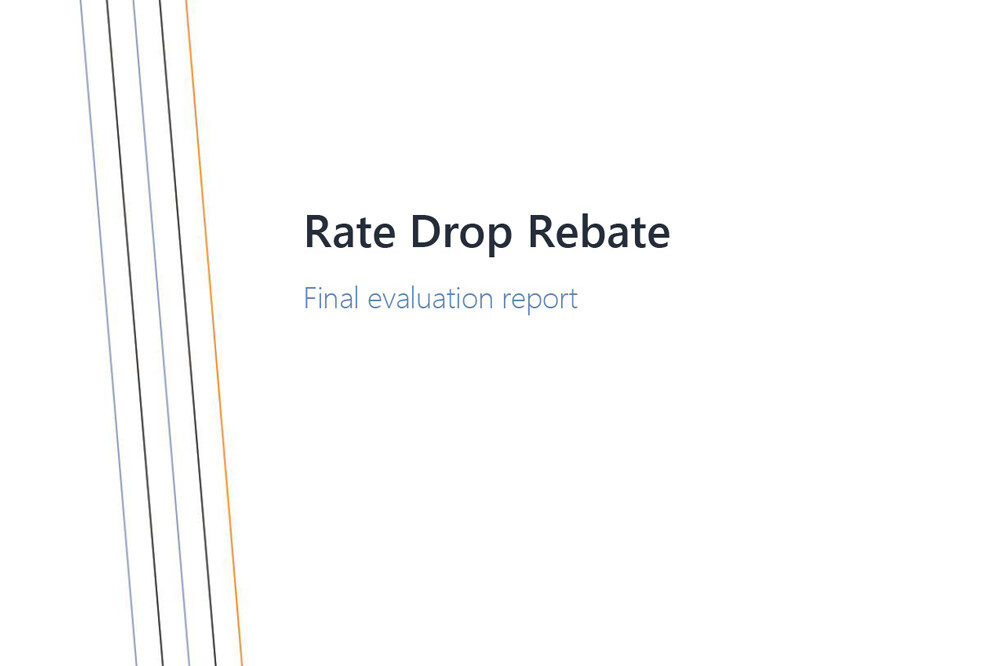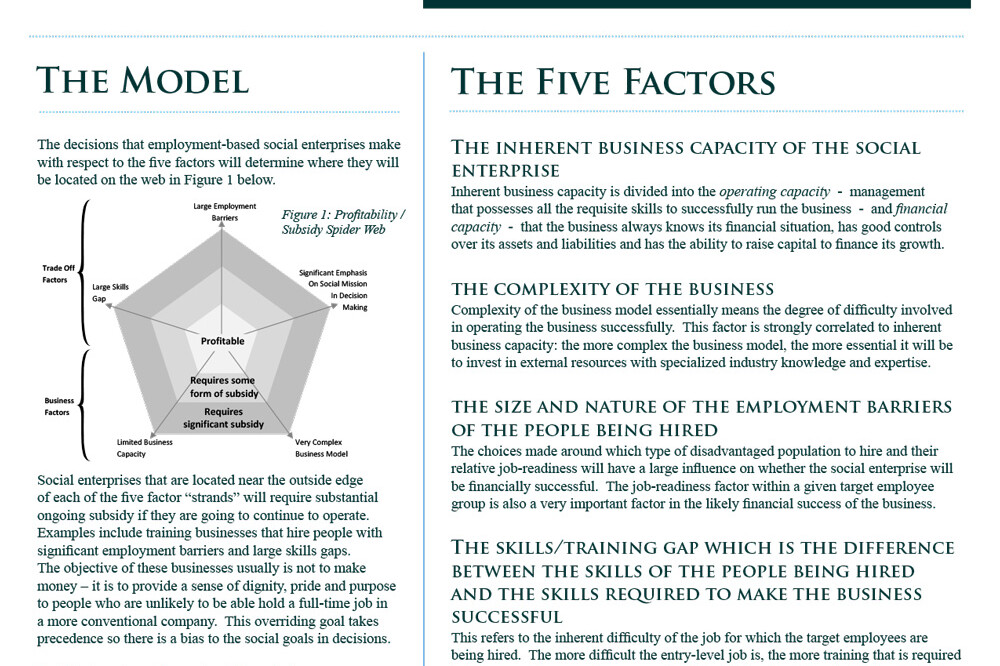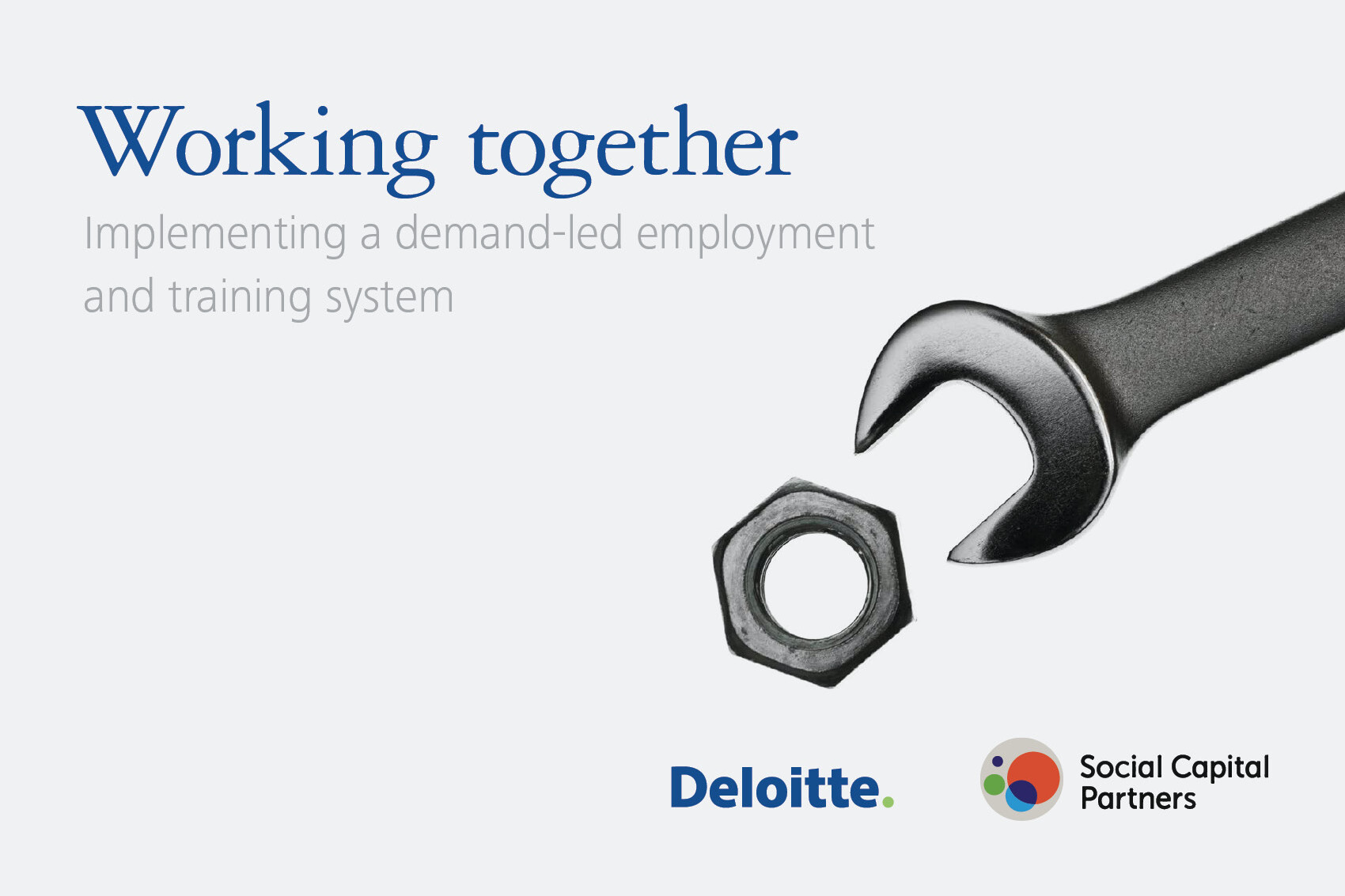Browse our research or filter your search by Topic or Type using the menu options on the left.
Market study submission: Competition in financing for Canada’s SMEs
Small- and medium-sized businesses (SMEs) face significant barriers to accessing capital and we believe that the lack of competition in the banking sector is one of several important contributing factors. We provided comment on the Competition Bureau's upcoming market study on SME financing because we believe that unlocking capital for SMEs and entrepreneurs will strengthen the Canadian economy, bolster our sovereignty and provide more Canadians with pathways to building wealth. We look forward to seeing how the evidence collected will help inform policymakers interested in tackling this issue.
February 27, 2026
From Guidelines to Action: Feedback on the Proposed Merger Enforcement Guidelines
The Competition Bureau's proposed Merger Enforcement Guidelines represent meaningful progress against trends towards corporate consolidation in Canada. In our formal feedback submission to the bureau, Social Capital Partners outlines that we strongly support the new guidelines. However, we believe that the operationalization of these guidelines will be the real test of their impact. Guidance documents shape expectations, but enforcement outcomes shape behaviour. Serial acquirers are sophisticated actors who model regulatory risk into their strategies. To succeed, the bureau must demonstrate visible capacity to track, analyze and challenge roll-up patterns that are driving up prices and sacrificing quality and service in key sectors.
February 12, 2026
Mapping the economic centre-left
The large and well-funded American blogosphere has a pretty wide array of economic voices and ideological camps within the centre-left tent. So big, in fact, that there’s a sub-genre of inter-blog conflict dedicated to people named Matt. Over the years, SCP Director of Policy Dan Skilleter has found it useful to categorize these various different centre-left ideological camps in his head. The categories are not mutually exclusive, and most people probably identify with a few at once. This explainer breaks down each camp's story about what’s wrong with the economy and how they’d prioritize dealing with it.
November 26, 2025
FAQs on Budget 2025 and the future of Employee Ownership Trusts (EOTs) in Canada
There is some confusion out there about Budget 2025 and employee ownership trusts (EOTs). To confirm, the federal government did not extend the $10M capital-gains exemption for sales through EOTs, in the budget released on Tuesday, November 4, 2025. Because the sale of a business to an EOT is a process that often takes more than a year, certainty on the rules is essential for owners, advisors and employees planning succession. In this FAQ, Employee Ownership Canada answers key questions about what’s enacted now, why the incentive matters for uptake and how the sector, businesses and the organization are moving forward from the Budget news.
November 6, 2025
Elbows up: A practical program for Canadian sovereignty | Report
Canada can’t become a sovereign country by doing the same old things, explains a new compendium of essays co-sponsored by the CCPA, the Centre for Future Work and several national civil society organizations. Elbows Up: A Practical Program for Canadian Sovereignty is a response to corporate rallying cries responding to Donald Trump with a familiar playbook: deregulation, austerity, tax cuts and fossil fuel expansion. The collection includes contributions from 20 progressive economists and policy experts, including SCP CEO Matthew Mendelsohn and others who participated in the Elbows Up Economic Summit held in September 2025 in Ottawa.
October 31, 2025
Acquisitions can’t build Canada: Understanding Foreign Direct Investment in an age of geopolitical fracturing
Levels of our country's Foreign Direct Investment, or FDI, do not actually tell us much about the state of the economy. One large deal can significantly affect total FDI inflows, which can vary dramatically from year to year. Plus, as SCP Fellow Sarah Doyle and SCP Chair Jon Shell write, not all FDI is created equal. Distinguishing between beneficial and harmful FDI is even more important now, in the context of a global trade war and threats to Canada’s economic sovereignty. In this explainer, they unpack FDI: what it is, when it is and isn’t beneficial and why understanding these nuances matters.
September 19, 2025
Social Capital Partners’ 2025 Federal Pre-Budget Submission
There has never been a federal budget quite like this one. Canada faces a moment of extreme peril, threatened by an American administration that has abandoned our mutually beneficial trading and security regime. In our pre-budget submission, Social Capital Partners recommends that Budget 2025 focus on broadening ownership to ensure the benefits of economic growth are more widely shared. Policy choices should move us away from an economy fueled by wealth extraction that enriches billionaires and inflates the bottom lines of foreign funds, and instead, move us towards more local reinvestment that builds an inclusive, sustainable and resilient democratic future where all Canadians have realistic chances to build economic security.
August 28, 2025
Non-Permanent Residents and their impact on GDP per capita | Summary
New research by economist and SCP Fellow Gillian Petit estimates what Canada’s GDP per capita would have been over the past decade if Canada had kept our temporary resident numbers stable. She also estimates the expected impact on GDP per capita in the coming years due strictly to planned reductions in Canada's intake of non-permanent residents. Among key findings: Canada’s GDP per capita is misleading and should not be used as if it were the sole indicator of economic well-being. Plus, if we had maintained our temporary resident numbers at two percent of the population in recent years, Canada’s GDP per capita would look much more like our peer countries: a little bit ahead of countries like Germany, the United Kingdom and Australia and a little bit lower than countries like Belgium, Sweden and France.
July 11, 2025
Non-Permanent Residents and their impact on GDP per capita | Report
New research by economist and SCP Fellow Gillian Petit estimates what Canada’s GDP per capita would have been over the past decade if Canada had kept our temporary resident numbers stable. She also estimates the expected impact on GDP per capita in the coming years due strictly to planned reductions in Canada's intake of non-permanent residents. Among key findings: Canada’s GDP per capita is misleading and should not be used as if it were the sole indicator of economic well-being. Plus, if we had maintained our temporary resident numbers at two percent of the population in recent years, Canada’s GDP per capita would look much more like our peer countries: a little bit ahead of countries like Germany, the United Kingdom and Australia and a little bit lower than countries like Belgium, Sweden and France.
July 11, 2025
HBS Case | Taylor Guitars: Making Employee Ownership Work the Taylor Way
After a successful transition to 100% employee ownership, Taylor Guitars' experience is now the subject of a Harvard Business School case. Read more about how their experience brings the evidence to life: "Employee-owned firms grow faster, default less often, are far more resilient in economic downturns and pay their people more, even before you factor in the wealth-generating effects of ownership. It’s also a great business succession option as it lets owners exit for fair prices while protecting the people and communities they care deeply about.”
July 3, 2025
Joint submission to the Ontario Securities Commission regarding a proposal to expand retail investor access to private equity
CAMP and SCP made a joint submission to the Ontario Securities Commission detailing deep concerns about proposals related to expanding retail investor access to private equity funds. The submission details the risks associated with buyout private-equity funds and the harms they can cause to communities and our broader economy.
February 7, 2025
Feedback on the Competition Bureau’s Review of the Merger Enforcement Guidelines
There is a growing recognition, both globally and within Canada, that competition is essential to fostering a strong, resilient and productive economy. Yet, despite this consensus, the Canadian economy is becoming increasingly consolidated, and entrepreneurship is in steep decline. SCP's feedback on the Competition Bureau's Review of the Merger Enforcement Guidelines outlines our concern with serial-acquisition strategies wherein large firms acquire smaller companies in ways that evade regulatory scrutiny, and shares our recommendations to address this issue.
January 8, 2025
Optimizing the impact of Canada’s Small Business Financing Program
Social Capital Partners and Venture for Canada made a joint submission to Innovation, Science, and Economic Development Canada (ISED) to amend the Canadian Small Business Financing Program (CSBFP) to make it easier for would-be entrepreneurs to purchase existing businesses. Our recommendations to encourage more Entrepreneurship through Acquisition, or ETA, could help stop the decline in entrepreneurship, protect small businesses, keep wealth in Canadian communities and unleash more local, private-sector innovation.
October 30, 2024
Billionaire Blindspot: How official data understates the severity of Canadian wealth inequality
Statistics Canada's official wealth survey significantly underestimates wealth inequality. Canada’s wealth concentration is not as extreme as in the United States, but closer than official data suggest. This misleading portrait undermines Canadians’ ability to have an evidence-informed conversation about how to address growing wealth concentration and the threats it represents for economic resilience and democratic stability.
April 24, 2024
Consultation on the future of competition policy in Canada
Canada’s existing competition regime is unfair for small business. We surveyed over 1,000 small business owners to understand how competition policy has affected them.
March 23, 2024
A positive vision for the future of Canadian competition policy
The concentration of corporate power in Canada can be traced back to the antiquated objectives of our nation’s competition policy. Our submission to the government’s review of the Competition Act provides sharp critiques and recommendations on a path forward.
March 1, 2023
Inclusive search fund concept paper
Search funds allow entrepreneurs without capital to buy small businesses. However, only an exclusive club can access the financing to do so and are often forced to re-sell their businesses. We’ve put a twist on the search-fund model to make it more inclusive and long-term.
July 20, 2022
Building an employee ownership economy
New research continues to demonstrate that employee ownership fosters economic resilience. As in previous economic crises, employee-owned companies were better at retaining employees and at maintaining hours and salaries throughout the pandemic. In a post-pandemic economic environment, the demonstrated benefits of increased employee retention and alignment by employee-owned companies will be even more important to support economic growth.
March 22, 2022
Business-in-a-box concept paper
Small, independent businesses are the backbone of our economy. Unfortunately, they’ve become harder to start and struggle to compete with large chains. We’ve been inspired by owner-owned cooperatives that help small businesses thrive.
July 1, 2020
Rate drop rebate: final evaluation report
The story of the Rate Drop Rebate pilot, including key milestones, successes, dilemmas, insights and lessons learned. The Rate Drop Rebate was a unique partnership that brought SCP together with financial institutions, publicly funded employment service providers and the Government to reduce unfair barriers to employment and help grow the province’s small and mid-sized businesses.
October 24, 2017
Partnership council on employment oportunities for people with disabilities
The Partnership Council champions the hiring of people with disabilities and provides strategic advice to the Ontario Minister of Economic Development, Employment and Infrastructure to enhance employment opportunities for Ontarians with disabilities.
May 11, 2015
The five critical factors of social enterprise profitability
What are boards, investors and management teams to do when there is tension between the financial and social bottom lines of social enterprises? Social Capital Partners shares learnings gleaned from seven years of investing in employment-based social enterprises. We identify the five most important factors that determine whether a social enterprise will be profitable or require some form of subsidy.
August 8, 2009
Working together: Implementing a demand-led employment and training system
Canada’s approach to training and development needs reform. Billions of dollars are spent annually on job training and skills development, with limited evidence of lasting benefits. Most problematic, employers’ talent needs (i.e., actual skills demand) are not formally embedded in the process of determining how or where money is spent, leaving a fundamental disconnect between demand for skills and the investments being made by governments.
April 14, 2009
A Fine Balance: What Inner City Renovations taught us about managing social and economic objectives inside business models
What are reasonable profitability targets for a social enterprise start-up with a mission to create employment for disadvantaged populations? How does external financing play a role in the execution of the social mission and how does a social mission as a key part of the business model impact the ability to reach profitability targets? SCP showcases one of our early investments and highlights key learnings about the inherent mission tensions in these business models.
May 8, 2008
Social return on investment report: TurnAround Couriers
SCP reports on six years of TurnAround Couriers, a social-purpose business dedicated to helping at-risk youth in the Greater Toronto Area overcome social and economic obstacles by providing them with a chance to get ahead.
January 8, 2007























